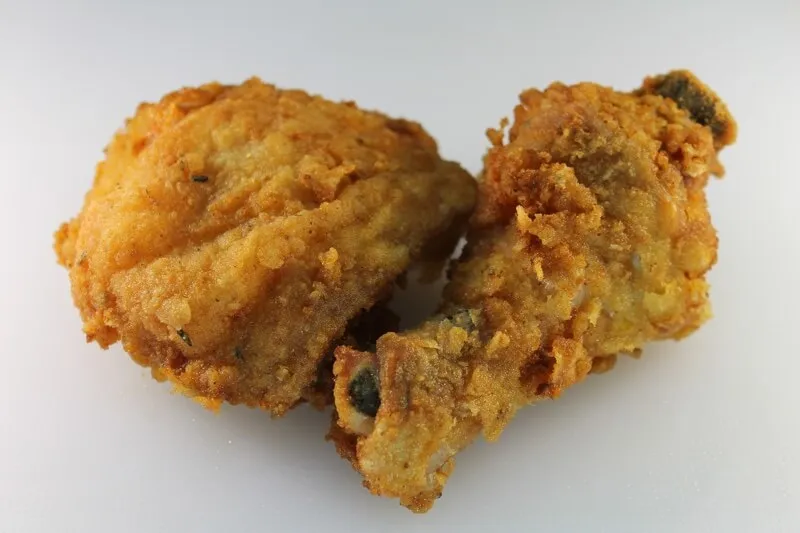As loving pet parents, we all want to give our canine companions the very best, and sometimes that includes sharing a bite of our own meals. However, many human foods, especially certain types of meat or meat preparations, can be surprisingly dangerous for dogs. While a delicious steak or a slice of ham might seem like an innocent treat, understanding “what meat should you never feed your dog” is crucial for their health and safety. This guide from Dog Care Story will delve into the specific meat-related items and other common foods that pose significant risks, helping you keep your furry friend healthy and happy. From bacterial contamination in raw meats to the hidden dangers of processed deli slices, knowing what to avoid is the first step in preventing serious health issues.
The Hidden Dangers of Certain Meats for Dogs
While meat is a cornerstone of a dog’s diet, the way it’s prepared, its type, and its fat content can turn a seemingly harmless treat into a serious health hazard. It’s not just about the type of animal, but also the form in which it’s offered.
Raw or Undercooked Meats: Bacterial Risks
Feeding your dog raw or undercooked meat, including chicken, beef, pork, or fish, comes with significant risks. These meats can harbor dangerous bacteria such as Salmonella, E. coli, Listeria, and Clostridium. While dogs’ digestive systems are different from humans, they are not immune to these pathogens.
- Salmonella and E. coli: These bacteria can cause severe gastrointestinal distress, leading to vomiting, diarrhea (which may be bloody), fever, lethargy, and abdominal pain. In severe cases, particularly in puppies, senior dogs, or those with compromised immune systems, these infections can be fatal. Furthermore, handling raw meat or coming into contact with a dog infected by these bacteria can pose a risk to human family members.
- Parasites: Raw meats can also contain parasites like roundworms, tapeworms, and toxoplasmosis. While cooking typically kills these parasites, raw meat can transmit them to your dog, leading to a range of health issues from digestive upset to neurological problems.
To ensure safety, always cook meats thoroughly before offering them to your dog. This process eliminates harmful bacteria and parasites, making the meat safe for consumption.
Cooked Bones: Choking Hazards and Internal Damage
It might seem natural to give your dog a bone, but cooked bones are among the most dangerous things you can feed them. Unlike raw bones, which are more pliable, cooked bones become brittle and can splinter easily.
- Choking: Small, splintered bone fragments can become lodged in your dog’s throat, esophagus, or intestines, leading to choking or blockages that require immediate veterinary attention. Chicken bones, turkey bones, pork rib bones, and T-bone steaks are particularly problematic due to their structure and tendency to shatter into sharp pieces.
- Internal Damage: Sharp bone fragments can perforate the stomach or intestinal lining, causing severe internal bleeding, peritonitis (infection of the abdominal cavity), or other life-threatening complications.
- Constipation: Even if bones pass through without splintering, they can cause severe constipation due to their indigestible nature, leading to pain and discomfort for your dog.
Always avoid giving your dog any cooked bones. If you want to offer bones, consult your veterinarian about safe, size-appropriate raw bones or dental chews specifically designed for dogs.
Processed and Cured Meats: High Sodium and Preservatives
Processed meats, such as bacon, ham, sausages, hot dogs, and deli slices, are highly palatable to dogs but are extremely unhealthy and potentially dangerous.
- High Sodium Content: These meats are packed with sodium, which can lead to excessive thirst and urination, and in severe cases, sodium ion poisoning. Signs of salt poisoning include vomiting, diarrhea, tremors, seizures, and kidney damage.
- High Fat Content: Processed meats are often very high in fat, which can trigger pancreatitis in dogs. Pancreatitis is a painful inflammation of the pancreas that can be mild or severe, sometimes requiring hospitalization and intensive care. We’ll discuss fatty foods more generally below, but these meats are prime examples.
- Nitrates and Preservatives: Many processed meats contain artificial additives, nitrates, and nitrites, which are used for preservation and flavoring. These chemicals can be toxic to dogs, potentially leading to gastrointestinal upset, red blood cell damage, or even a higher risk of certain cancers with long-term exposure.
 A dog looking at a plate of bacon, illustrating the dangers of processed meats for dogs
A dog looking at a plate of bacon, illustrating the dangers of processed meats for dogs
Fatty Trimmings and Skin: Pancreatitis Risk
While dogs need fat in their diet, excessive amounts, especially from cooked meat trimmings or poultry skin, can be very harmful. This includes the fat rendered from cooking bacon, chicken skin, and fatty cuts from pork or beef.
- Pancreatitis: As mentioned, a sudden intake of rich, fatty foods can cause pancreatitis. This condition is an inflammation of the pancreas, which produces digestive enzymes and hormones. Symptoms range from mild vomiting and diarrhea to severe abdominal pain, lethargy, loss of appetite, and even organ damage. Breeds like Miniature Schnauzers, Yorkshire Terriers, and Cocker Spaniels are genetically predisposed to pancreatitis. If you notice your dog hunched over in pain or showing signs of severe digestive upset after eating fatty food, contact your vet immediately.
Beyond Meat: Other Dangerous Foods to Keep from Your Canine Companion
While our primary focus is on “what meat should you never feed your dog,” it’s equally important to be aware of other common human foods that pose serious threats. Many of these items are frequently found in kitchens and can be easily accessed by curious pups. For more insights on safeguarding your pet’s health, you might find our article on what can you give a dog to stop eating poop helpful, as it addresses another common concern regarding dog behavior and diet.
Toxic Sweeteners and Treats
Many popular human treats contain ingredients that are highly toxic to dogs, even in small amounts.
- Xylitol: This artificial sweetener is found in many sugar-free products, including gum, candy, mints, some peanut butter brands, toothpaste, and baked goods. Ingesting xylitol causes a rapid release of insulin in dogs, leading to a sudden and severe drop in blood sugar (hypoglycemia), seizures, and potentially liver failure. Always check ingredient labels carefully.
- Chocolate: Containing caffeine and theobromine, chocolate is a well-known canine toxin. These stimulants can cause an elevated heart rate, high blood pressure, tremors, seizures, and even death. The darker the chocolate (baker’s chocolate, dark chocolate), the higher the concentration of these harmful substances, making it more dangerous. Smaller dogs are also more susceptible to lower doses.
- Grapes and Raisins: These innocent-looking fruits are highly toxic to dogs and can cause acute kidney failure, even in small quantities. The exact toxic substance is unknown, but the consequences are severe. Keep all grapes, raisins, and products containing them (like cookies or trail mix) out of reach.
 A picture of grapes, highlighting their toxicity to dogs
A picture of grapes, highlighting their toxicity to dogs
Alliums: Onions, Garlic, and Chives
All members of the Allium family are toxic to dogs, whether raw, cooked, dried, or powdered. This includes onions, garlic, chives, and leeks.
- Red Blood Cell Damage: These vegetables contain compounds that can damage a dog’s red blood cells, leading to a condition called hemolytic anemia. This means their red blood cells can’t carry enough oxygen, resulting in weakness, lethargy, pale gums, rapid breathing, and even collapse. Onion powder and garlic powder are highly concentrated and can be particularly dangerous.
Nuts and Seeds
Not all nuts are safe for dogs, and some can be extremely harmful.
- Macadamia Nuts: While the exact toxic agent is unknown, macadamia nuts can cause weakness, tremors, hyperthermia, vomiting, and severe digestive upset in dogs. Symptoms usually appear within 12 hours of ingestion.
- Avocados: Avocados contain persin, a fungicidal toxin. While the amount of persin in the fleshy part of the avocado is generally low, it’s concentrated in the leaves, skin, and pit. Different varieties of avocados have varying levels of persin. To be safe, it’s best to keep your dog away from all parts of the avocado to prevent potential gastrointestinal issues or other adverse reactions.
- Other Nuts: While peanuts (unsalted, plain) are generally safe, many other nuts are high in fat and can cause pancreatitis. Always avoid salted, seasoned, or chocolate-covered nuts.
Yeast Dough and Alcohol
These items can cause both internal and external harm to your dog.
- Raw Yeast Dough: If ingested, raw yeast dough can expand in your dog’s warm stomach, causing painful bloating and potentially a life-threatening condition called gastric dilatation-volvulus (GDV) or “bloat,” where the stomach twists. Furthermore, as yeast ferments, it produces alcohol, which can lead to alcohol poisoning.
- Alcohol: Alcohol, in any form (drinks, raw dough, fermented fruits), is highly toxic to dogs. Their smaller size and different metabolism mean even small amounts can cause severe effects on their nervous system, leading to disorientation, vomiting, diarrhea, tremors, difficulty breathing, coma, and even death. Always keep alcoholic beverages and food containing alcohol out of your dog’s reach.
 A dog looking at an alcoholic drink, emphasizing the danger of alcohol for pets
A dog looking at an alcoholic drink, emphasizing the danger of alcohol for pets
High-Fat and Salty Foods
Beyond specific meats, general high-fat and high-salt foods are also problematic.
- Fatty Foods: Foods rich in fat (e.g., fried chicken, heavy cream, excessive butter) can cause significant digestive upset, including vomiting and diarrhea. As discussed with fatty meat trimmings, the biggest concern is the risk of pancreatitis, especially in susceptible breeds.
- Salt: Just like with processed meats, too much salt from snacks like potato chips, pretzels, or even table salt can lead to sodium ion poisoning, affecting kidneys and causing severe neurological symptoms.
Other Hidden Hazards
- Coffee and Tea Leaves: Like chocolate, coffee and tea contain caffeine, a stimulant that is toxic to dogs. This includes brewed coffee, coffee grounds (used or fresh), tea bags, and tea leaves. Symptoms mirror those of chocolate poisoning, including hyperactivity, elevated heart rate, tremors, and seizures.
- Spoiled or Moldy Foods: Foods found in the garbage or compost bin can contain mycotoxins produced by molds, which can cause severe muscle tremors, seizures, and neurological problems. Always secure your garbage to prevent your dog from foraging.
Recognizing the Signs of Food Poisoning in Dogs
Even with the best precautions, accidents can happen. It’s vital to recognize the signs that your dog may have ingested something harmful. Common symptoms of food poisoning or toxic ingestion in dogs include:
- Vomiting (sometimes with blood)
- Diarrhea (which may be bloody or tarry)
- Lethargy or weakness
- Loss of appetite
- Abdominal pain (often indicated by a hunched posture)
- Excessive thirst or urination
- Tremors or muscle twitching
- Seizures
- Disorientation or uncoordinated movements
- Pale gums
- Difficulty breathing
Always observe your dog closely, especially if you suspect they’ve eaten something they shouldn’t have. The sooner you identify symptoms, the faster you can seek professional help.
What to Do in a Dog Food Emergency
Knowing what meat you should never feed your dog is important, but equally crucial is knowing how to react if an accidental ingestion occurs. If you suspect your dog has eaten any harmful food or substance, act quickly and calmly.
- Contact Your Veterinarian or Animal Poison Control Immediately: Do not wait for symptoms to worsen. Call your local veterinarian or the ASPCA Animal Poison Control Center (APCC) at 888-426-4435 (a consultation fee may apply). Have as much information ready as possible: what your dog ate, how much, when, and your dog’s weight.
- Stay Calm: Panicking can hinder your ability to provide clear information and can distress your dog further.
- Do NOT Induce Vomiting Without Professional Advice: Inducing vomiting can sometimes be more harmful than helpful, especially if the substance is corrosive, if the dog is already showing severe symptoms, or if it’s been too long since ingestion. Always follow specific instructions from a veterinary professional.
- Follow Veterinary Instructions: Depending on the situation, your vet may recommend bringing your dog in for diagnostic tests, induced vomiting, administration of activated charcoal to absorb toxins, IV fluids, or other medications. In severe cases, hospitalization may be necessary.
While these treatments can be life-saving, they can also be expensive. Having a pet health insurance plan, such as one from ASPCA Pet Health Insurance, can provide peace of mind and financial assistance during unexpected emergencies.
Conclusion
Understanding “what meat should you never feed your dog,” alongside other toxic human foods, is a fundamental aspect of responsible pet ownership. From the bacterial risks of raw meats and the choking hazards of cooked bones to the insidious dangers of processed ingredients and artificial sweeteners, the kitchen can be a minefield for our curious canine companions. By being vigilant about food safety, carefully storing potentially harmful items, and knowing the signs of distress, you can significantly reduce the risk of accidental poisoning. Always prioritize professional veterinary advice in an emergency, as timely intervention can make all the difference in your dog’s prognosis. Keep your dog safe by keeping dangerous foods out of paw’s reach, and when in doubt, remember: consult your vet.
References
- ASPCA Animal Poison Control Center. (n.d.). People Foods to Avoid Feeding Your Pets. Retrieved from https://www.aspca.org/pet-care/animal-poison-control/people-foods-avoid-feeding-your-pets
- American Veterinary Medical Association (AVMA). (n.d.). Raw pet food diets and the AVMA’s policy. Retrieved from https://www.avma.org/resources-tools/pet-owners/petcare/raw-pet-food-diets-and-avmas-policy
- Pet Poison Helpline. (n.d.). Top 10 Pet Poisons. Retrieved from https://www.petpoisonhelpline.com/pet-owners/basics/top-10-pet-poisons/
